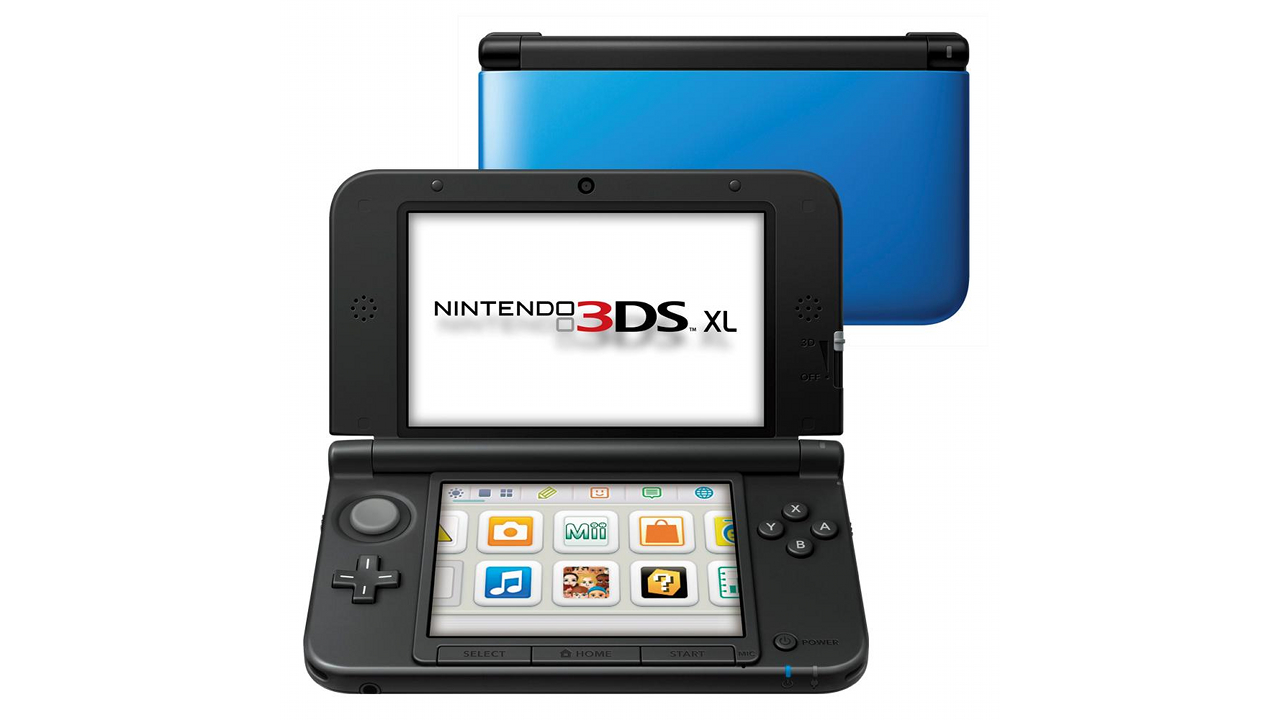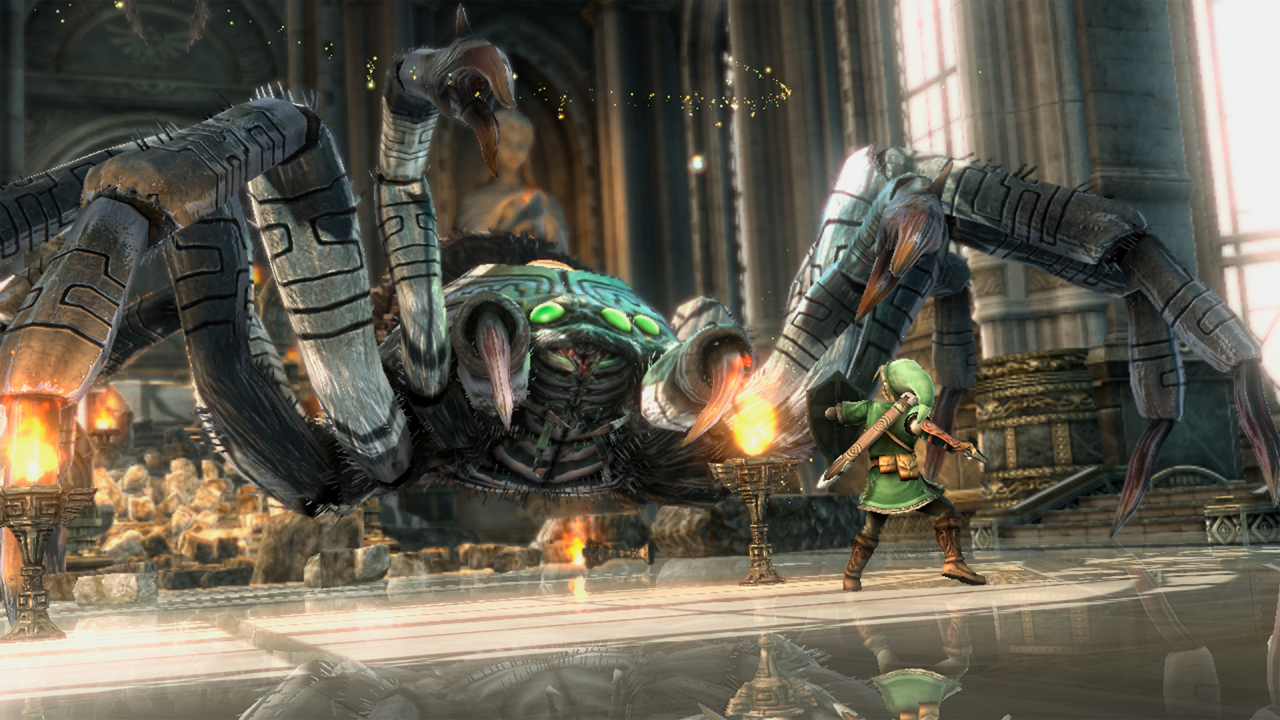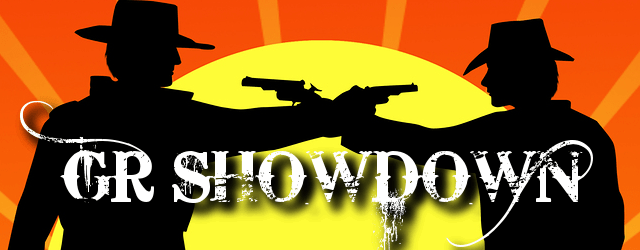GR Showdown pits the Game Revolution staff against each other in a passionate debate on a particular hot-button gaming topic. Our self-imposed rules? There is no middle ground—all must take a side. All debates will have an equal number of representative on both sides: either 1-on-1 or 2-on-2 . And all our arguments must be made in 350 words or fewer; 500 or fewer, if it's 1-on-1. Which side are YOU on?

 Nick Tan – YES: Don't be swayed by Nintendo fanboys. They like to sweep any criticism of the Wii U by saying that it's trendy to hate on the Wii U and that it's all just "doom and gloom". Sounds like something a cult would say.
Nick Tan – YES: Don't be swayed by Nintendo fanboys. They like to sweep any criticism of the Wii U by saying that it's trendy to hate on the Wii U and that it's all just "doom and gloom". Sounds like something a cult would say.
The Wii survived due to the motion gaming gimmick, a fad that's now dead. The Wii U's gimmick—the GamePad—just isn't a console-selling feature. After the holiday spike of 2012, the Wii U came crashing down in January with only 46,000 hardware units sold. And let's not forget that the Wii began downtrending during the last few years of its existence; the Wii U is in danger of doing this much sooner.
Some might point to the 3DS and how successful it is despite people hating on its lack of launch software, but there's a major difference: The 3DS has weak competition. It doesn't even need to try against the Vita. Contrast this to the Wii U, whose fate will ultimately be the third wheel to the PlayStation 4 and next Xbox 360 console.
Who will praise the Wii U's "last-gen" graphics in two years? Who will care about a GamePad when the PS4 has Remote Play? Who will talk about Miiverse when Microsoft's and Sony's cloud services define online connectivity and make game streaming a reality?
Only 34,000 pieces of Wii U software were sold in the UK in January and that includes the bundled Nintendoland. That's fewer than the Vita's 46,000 software units in the same period. Tragic. And of the titles alledgedly in production for Wii U, an unhealthy portion of them will be ports.
Can anyone rationally believe that Wii U will succeed when it has to spread out its first-party franchises and passable third-party support over the next six years? Heck, console generations are getting longer, so why not the next ten years? Nintendo can only pump out a handful of triple-A first-party titles a year. Even if they are amazing titles, is that enough to sustain a console? The Wii U's long-term future is certainly in doubt.

 Daniel Bischoff – NO: Nick, Nick, there's a reason people are pointing to the 3DS, but it isn't to compare the handheld markets with the console markets. It's because the ever-dominating Nintendo handheld will carry the company through waters both calm and rough, a beacon in the storm. Iwata and company can rely on that steady growth to push development on the Wii U and make it a fantastic console.
Daniel Bischoff – NO: Nick, Nick, there's a reason people are pointing to the 3DS, but it isn't to compare the handheld markets with the console markets. It's because the ever-dominating Nintendo handheld will carry the company through waters both calm and rough, a beacon in the storm. Iwata and company can rely on that steady growth to push development on the Wii U and make it a fantastic console.
Both you and I agree that the Wii was a console people owned along with a PS3 or 360. The Wii U can be the same thing. In fact, it's already appearing to trend that way. The recently revealed Dualshock 4 has a touch-sensitive area, but we don't know what it is. Nintendo designed their console to compliment the competition which is clearly more interested in an abundance of power (PS4) or, if rumors are true, the casual, entertainment-leaning market (Next Xbox).
Nintendo is a risk taker, and the 3DS is proof of that. Despite the gimmicky 3D effect, people who pick the console up with a core game find so much to love. I've often related the fun I have with my 3DS to the joy associated only with the Nintendo 64.
Yes, even the 3DS is the answer for your software and sales woes. Nintendo has been here. They have the money in the bank to take and react to these things. As they did with the 3DS, Miyamoto will put that replica Master Sword to good use and slash the hardware price or pack in an extra game.
Next-gen console prices will soar, but I hope Microsoft or Sony come close to competing with the Wii U's $300 tag. It'll only encourage Nintendo to do what it does best: play to your biggest sympathies. These are timeless characters and excellent games in their own right.
Just wait until you see the first original Zelda title in HD. See where Mario goes next. Try to resist the impossible blend of Shin Megami Tensei and Fire Emblem. The 3DS is the workhorse in this relationship; more amazing Nintendo games are on their way.
 Anthony Severino – YES (Rebuttal): Silly, Daniel! We're not talking about the 3DS here. Though it shows that Nintendo can turn things around, the circumstances are very different with the Wii U.
Anthony Severino – YES (Rebuttal): Silly, Daniel! We're not talking about the 3DS here. Though it shows that Nintendo can turn things around, the circumstances are very different with the Wii U.
The Wii U is struggling, contrary to the 3DS, due to lack of software and a clear message from Nintendo. What is it that the Wii U does, exactly? How is it better or different from other consoles or even the Wii before it? What, the GamePad? It's a screen trying to pawn itself off as a tablet. It’s not portable and doesn’t run apps on its own. If it’s not clicking with other developers, this dry spell of support will continue.
Unlike the 3DS's gimmick, the GamePad is central to the Wii U experience. You just can’t turn it off. So comparing the Wii U’s current struggles to the 3DS and thinking it’s going to work itself out is just wishful thinking.
Whereas the 3DS's only competition is the struggling PlayStation Vita, the Wii U released in its own middle-generation, sandwiched between the PS3 and Xbox 360, which have massive install bases and huge libraries, and the PS4 and the next Xbox, which will surely have both superior content and hardware. Developers will have difficulty scaling projects down to work on the Wii U. Even worse, it doesn’t have the Wii's initial leap in install base and hype.
While Nintendo can support the console alone, the Wii U doesn't have that ace up its sleeve like the Wii's motion controls. As for online gaming, it's playing catch up with the PSN and Xbox LIVE of 2007. When personalization and cloud-integration arrives, it will make the Wii U’s service look like some poor schlep sending smoke signals to his friends to start an online game together. It's fucking archaic.
Nintendo released Wii U too late for this gen and with not enough power for next gen. It was in trouble before it was ever released. And now its competition are beginning to show their hand, that danger has become ever more clear and apparent.

 Alex Osborn – NO (Rebuttal): Instead of rambling on about the handheld market, which is clearly not the topic of conversation, let's look at Nintendo's console history. I'm sure you'd agree with the fact that the Wii U is quite possibly headed toward a similar future as the GameCube, which in my humble opinion is far from troubling.
Alex Osborn – NO (Rebuttal): Instead of rambling on about the handheld market, which is clearly not the topic of conversation, let's look at Nintendo's console history. I'm sure you'd agree with the fact that the Wii U is quite possibly headed toward a similar future as the GameCube, which in my humble opinion is far from troubling.
The debate at hand is whether or not the Wii U's future is in trouble and while, yes, there are more powerful consoles on the horizon and, yes, the Wii U will almost certainly have lackluster third-party support, you can't underestimate the power of the company's first-party franchises. Anthony, you said it yourself: "Nintendo can support the console alone." So why would the Wii U be in trouble?
The crux of your argument is based on the presupposition that the Wii U needs to compete with the PS4 and next Xbox. That couldn't be further from the truth. Nintendo doesn't want to compete with Sony and Microsoft, and they proved that with the Wii. Sure, the GamePad may not be as compelling of a gimmick, but that's not what made the Wii great anyway. Gamers and casual fans alike want more Mario and more Zelda, and the only place to get that is on Nintendo's platform.
We're still incredibly early on in the Wii U's life, so painting a picture of doom and gloom only a few months after its release is a bit asinine if you ask me. Nintendo has a new 3D Mario title in the works, a brand-new Zelda (not to mention a remake of Wind Waker), Super Smash Bros. 4, and no doubt some other surprises as well. Will the Wii U win the next-gen console war? Probably not, but that doesn't mean the platform is in trouble either.







